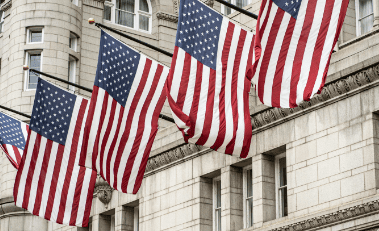A key decision by the US government is to bar smart cars using certain technologies from China and Russia. This is due to security issues within the country. So, let’s understand what it exactly means and why.
Why the Ban?
The US Commerce Secretary, Gina Raimondo, made a statement last September 23, 2024. Based on the statement, US Commerce Department reportedly advises to ban the selling and importing of smart vehicles in China and Russia with specific software or hardware. This is due to an ongoing government probe that began in February. Indeed, the risks have been found to pose a high danger to be at the level of danger, one of which is being hijacked by hackers and obtaining intimate driver’s details.

At this juncture, explains Raimondo, “in extremis, a foreign adversary could cut off or seize control of all their vehicles operating in the United States at the same time, causing crashes or blocking roads.” In other words, if certain technologies are included in cars, it becomes hazardous for all concerned.
Which Vehicles Are Affected?
They will not impact the existing cars in the market. They will apply to new automobile from the model year 2027 on the software and 2030 on the hardware sides. This time will give car manufacturers adequate time to upgrade their vehicles to safety standards with respect to US consumers.
Battle of Intents
This proposed ban forms part of a broader competition between the United States and China, two superpowers in the world and among the biggest economies around the globe. The US and China are each trying to ensnare greater control over supply chains for fundamental technologies, for example, computer chips and artificial intelligence software, as a means of further entrenchment over car manufacturing. Connected cars form an investment area to which China has been pouring money. China also gains increasing muscle with an ever-increasing presence in Europe, sending alarm signals in the United States.
Interestingly, it is not just about the data that German-made cars like Volkswagen collect; the Chinese government is also concerned about data collected by American-made cars such as Tesla. In fact, some Chinese officials have even banned these vehicles from their sites over privacy concerns.
What are Connected Vehicles?
Connected vehicles are the newest car, bus, or truck equipped with technology that links it to the internet. They encompass the GPS, roadside assistance, and other features that require such connectivity.
Following the publicizing of the rules, the public will be afforded another 30 days to comment on the proposed rules. The Commerce Department plans to finalize the rules by the end of the President Biden administration. Additionally, an economic analysis will be released to explain the costs carmakers and consumers may incur due to the new rules.
This, Raimondo claims, is more of a national security play rather than a trade play. She argues that “if China or Russia could collect data on where the driver lives or where their kids go to school that’s information that could leave Americans vulnerable.”
Risk from Foreign Technology
What the US officials fear most is that those electric charging stations, and other critical infrastructure, could be used by hackers from China, Russia, or other countries. As one of them, National Security Adviser Jake Sullivan, explained, “We’ve already seen ample evidence of the PRC pre-positioning malware on our critical infrastructure for the purpose of disruption and sabotage.”.
The greater the number of smart cars with risky technology on US roads, the more acute the likelihood of disruption and sabotage becomes.
China’s Response
The Chinese government does not accept this allegation. They say that the US is misusing national security as a pretext to act against Chinese companies. Lin Jian, spokesperson for China’s Foreign Ministry added that: “China opposes the US’s broadening of the concept of national security and the discriminatory actions taken against Chinese companies and products.”
This ping-pong example captures the nature of the constant struggle between the two superpowers and explains the complexity involved in global trade and technology.
Interestingly, the much-debated ban comes at a time when the White House has just unveiled a new set of initiatives intended to assist American autoworkers, particularly within the State of Michigan, the backbone of the constituency of President Biden. The administration is putting in $1 billion towards assisting small and medium-sized auto suppliers, and it’s initiating workforce training programs for employees to be able to work within the automobile supply chain.
Vice President Kamala Harris, who has been campaigning intensely in Michigan, said that creating opportunity for workers is a key element in her campaign. “Investing in the ambitions and aspirations of our people is the best way to grow the American economy,” she said.

Forward Thinkers
Moving forward with the proposition from the US government, the implications it will bring to consumers and the auto industry will be seen. While on safety and national interest, it must also be balanced considering the demand of consumers and the auto industry.
In the coming weeks, there will be opportunity for public comment on these proposed regulations. Within years to come, this will challenge policymakers between keeping the roads safe and a push towards innovation.








